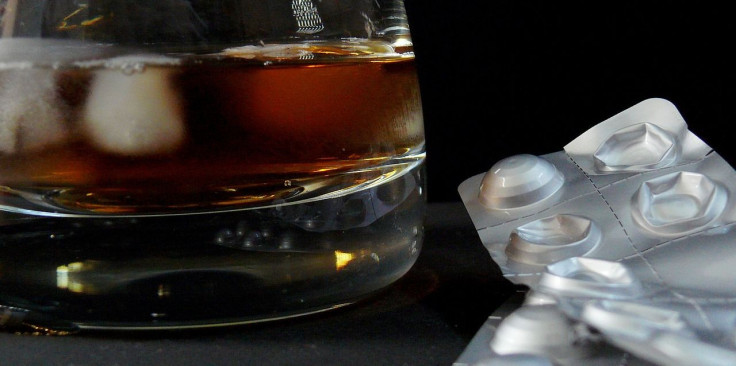6 Of The Most Dangerous Drug And Alcohol Cocktails
More than half of American adults have had alcohol in the past month, according to the National Institute on Alcohol Abuse and Alcoholism. But how many of them paused to think about the medications or drugs they had taken and wondered what it could do to their bodies? Despite warning labels on prescription pill bottles and doctors’ warnings, alcohol and drug cocktails take millions of lives every year in the United States.
But not everyone is at fault. Some take a sip of their wine or beer without knowing the risk while the drugs perform an often unpredictable chemistry experiment inside their bodies. Alcohol remains the deadliest drug in the world, accounting for crimes, accidental deaths, and poisonings, but including drugs in the mix adds a significant dose of danger. Learn about the risks of certain combinations to lower your chances of unintentional overdose and even death.

6 of Alcohol’s Deadliest Duos:
1. Benzodiazepines and Alcohol
Between 2001 and 2014, the total number of deaths caused by benzodiazepines (nicknamed benzos) alone increased five-fold. Adding alcohol to the mix increases the risk of unpredictable outcomes. This deadly combination is responsible for more than a fifth of drug-and alcohol-related hospital visits, which often led to respiratory failure.
Because both substances are depressants, they can greatly relax the muscles and slow the central nervous system down to a crawl, putting the user at risk for coma and death. Chronic use can decrease the immune system’s ability to fight off life-threatening infections, leading to an increased risk of death and massive organ failure.
2. Opiates and Alcohol
Similar to the particularly lethal combination of benzos and alcohol, opiates are highly dangerous when mixed with alcohol. Opiates including illegal heroin, and prescription painkillers like OxyContin, Vicodin, and hydrocodone, work to depress the central nervous system, which ultimately slows down breathing. Although it can provide a sedative effect and, in some cases, a sense of euphoria, the risk of overdose is devastatingly high. According to the Centers for Disease Control and Prevention (CDC), alcohol was involved in 22 percent of prescription painkiller deaths.
3. Antidepressants and Alcohol
Antidepressants, such as Zoloft, Prozac, or Xanax can increase the intensity of alcohol. So, instead of feeling the effects of one drink it actually feels like you’ve had two. Certain antidepressants cause impaired decision making, dangerously high blood pressure, and intensified depression. Once the drug is mixed with alcohol, it significantly increases the risk of dizziness, seizures, confusion, and coma.
4. Stimulants and Alcohol
On its own, stimulants like Ritalin, Adderall, meth, speed, and cocaine speed up the body, causing an increase in blood pressure that works to mask the effects of alcohol. Specifically combining cocaine and alcohol produces a high amount of cocaethylene, which increases the risk of cardiovascular toxicity. This dangerous third substance causes excess pressure and stress on the heart at a much higher extent than any other drug.
5. Birth Control and Alcohol
According to the CDC, 62 percent of American women of reproductive age are currently using contraception; most rely on birth control pills to abstain from an unintended pregnancy. After taking the pill, it takes about three hours to reach the bloodstream and become effective.
Women often feel more drunk quicker when they’re on the pill because their bodies are busy metabolizing birth control’s hormones. This makes it more difficult to metabolize ethanol, the drunk-inducing ingredient in alcohol. It also takes alcohol a longer time to leave the body, which harms a woman’s decision-making skills and puts her at risk for drinking far past intoxication.
6. OTC Medications and Alcohol
Over-the-counter (OCT) drugs may seem to be an innocuous choice since they're found on the shelves of your local drug store, but the wrong combination could lead to a deadly result. According to a study published in the journal Medical Clinics of North America, researchers discovered 38 percent of people who developed acute liver failure had ingested too many Tylenols while drinking alcohol.
Although your sleeping pill bottle may warn of the increased sedative effects from mixing with alcohol, some people may not think twice about a glass of wine. However, the combo can reduce blood pressure levels to extreme lows, making it difficult to breathe.
According to Harvard Medical School, cholesterol-lowering statins are taken by 32 million Americans every day, but once combined with alcohol can take a huge toll on the liver and put the body at risk for failure over time.
Read More:
Prescription pads are going digital in the United States, forcing doctors to think long and hard before writing a script for a painkiller. Read here.
Published by Medicaldaily.com



























